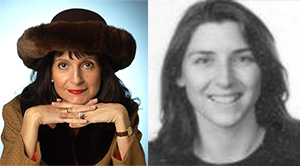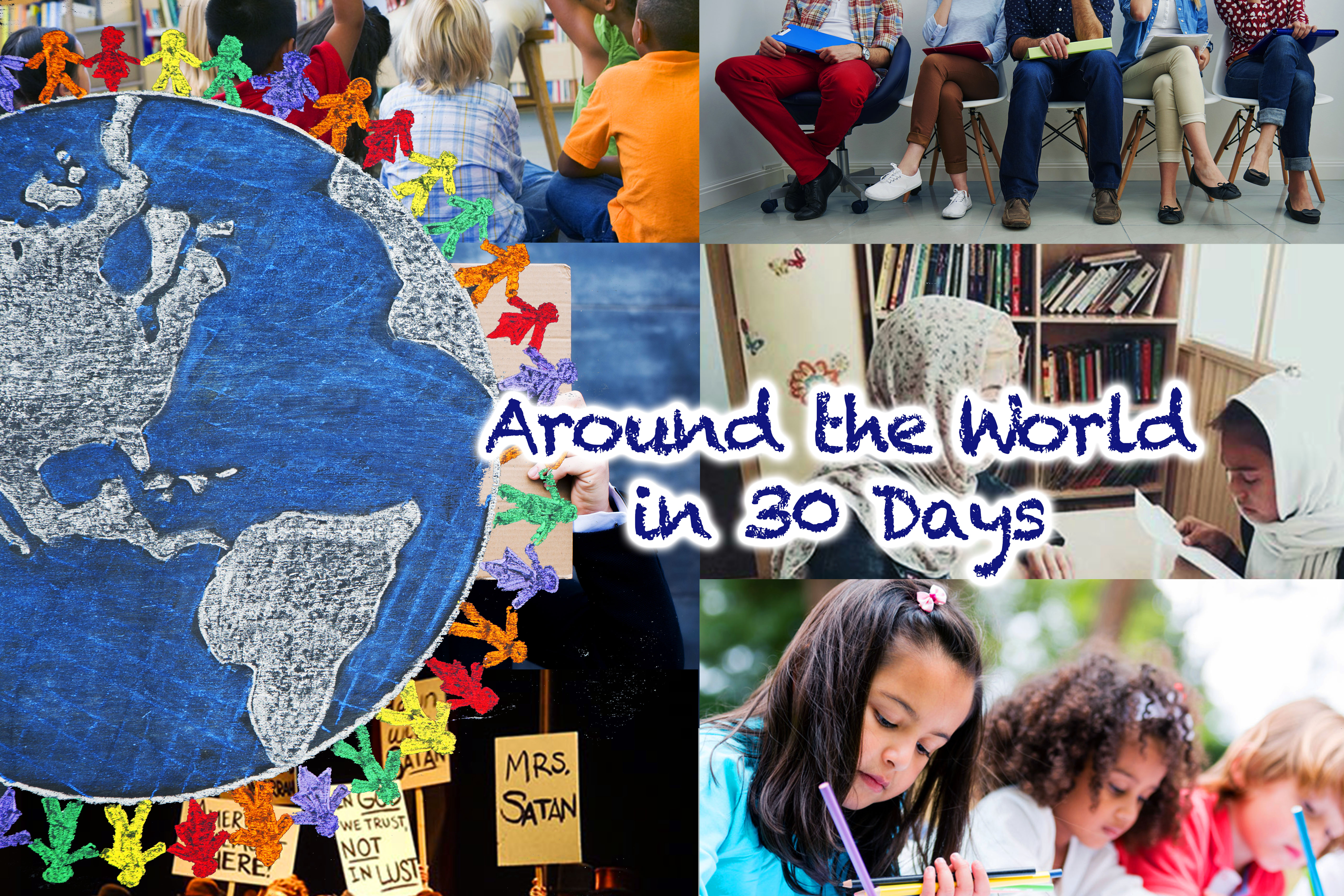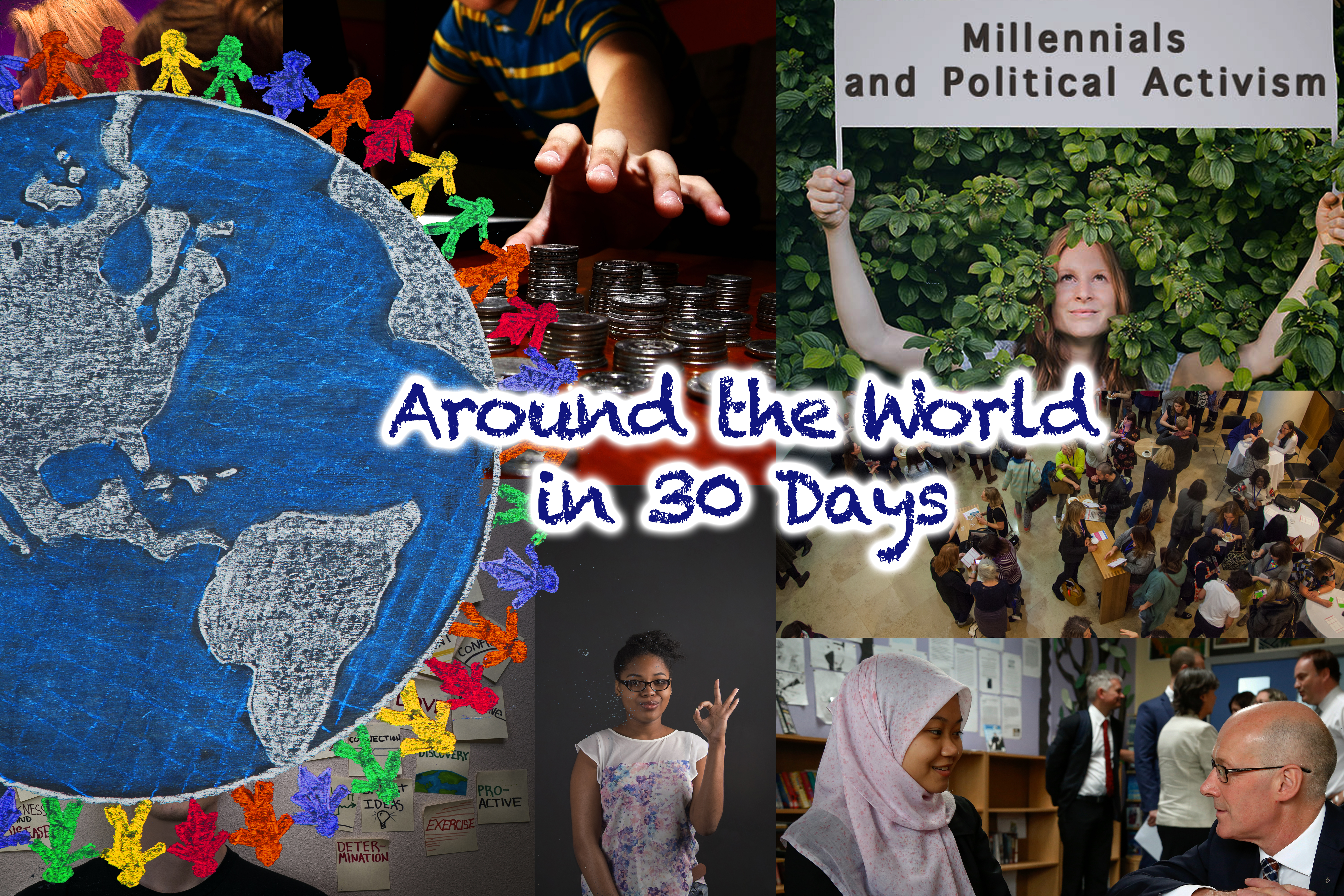“Children from non-traditional families, for example – single parent, multi-racial, same sex parents, have the right to see their family structure acknowledged and respected.” — Tracey Burns
The institution of marriage itself is changing, and Tracey Burns at the OECD’s Centre for Educational Research and Innovation (CERI) believes “schools need to take these changes into account.”
There are fewer marriages and the divorce rate is rising. Couples choose not to marry or wait longer to get married (28 years is the average age for having a first child and 30 years is the average age for a first marriage). Modern families are a mixed bag, “including reconstituted families, single parents, multi-racial and same-sex families.” Research from PISA shows that students from single-parent families aren’t performing as well on average as students from other types of families, and Burns says some of the ways in which schools and educators can help include “raising awareness of achievement gaps, providing hands-on support, establishing a good relationship with the student and his/her parent(s) or helping with homework and academic difficulties.”
Tracey Burns heads the Governing Complex Education Systems project in the OECD’s Centre for Educational Research and Innovation (CERI). This project looks at the challenges that governments face in steering complex education systems and the role of knowledge in that process. She is responsible for the publication of “Trends Shaping Education 2016”. Tracey joins us in The Global Search for Education.
“Parents play a key role in developing their child’s understanding of the world. Teaching tolerance and acceptance starts in the home, at the earliest ages.” — Tracey Burns
Tracey: What role do educators have in encouraging open discussion about non-traditional families? What role do parents have in informing their children about the changing nature of the family structure?
Schools are reflections of our society, and they can and should play an important role in fighting prejudice and promoting acceptance. Children from non-traditional families, for example – single parent, multi-racial, same sex parents, have the right to see their family structure acknowledged and respected. This helps build and reinforce children’s self-esteem and confidence. Importantly, it also helps all children – those from traditional families as well as non-traditional ones – develop their openness to and understanding of others. However, it is essential to recognize that schools are not politically neutral and often reproduce social prejudices, even if unintentionally. Providing teachers with the tools to teach diverse classrooms is a necessary step that will allow them to support children from all backgrounds. Establishing a vision for a school (for example, one that is welcoming to all) is a great start. So is developing explicit guidelines for behavior, for example, an effective anti-bullying strategy. The importance of parents in this cannot be understated. Parents play a key role in developing their child’s understanding of the world. Teaching tolerance and acceptance starts in the home, at the earliest ages.
“Access to Early Childhood Education and Care for 3-5 year olds is universal in Belgium, France, Mexico, the Netherlands and Spain. Many other countries subsidize families with limited means, in order to support those most disadvantaged.” — Tracey Burns
What relationship should governments have with children 0 – 5? Early access to childcare and early childhood education relate directly to higher achievement in life. How can governments ensure that it is accessible to all, especially the most disadvantaged? What can and should all parents do to help support this system and make sure i t thrives?
Women do on average 60% of all caring work in the household across OECD countries. Not only can the provision of high quality early childhood education and care (ECEC) facilitate women’s participation in the labor force, it can also have a positive effect on their children’s educational performance. In fact, 15-year olds who attended one year of pre-primary school performed on average 30 points better in PISA, even after controlling for socio-economic differences. Delivering strong ECEC hinges on two issues: access to affordable care, and ensuring high quality. Minimum standards can help ensure that every child has equal access to quality care, irrespective of parental income. Expanding access so that there are enough places to meet the demand is an obvious step. It can be done: for example, access to ECEC for 3-5 year olds is universal in Belgium, France, Mexico, the Netherlands and Spain. Many other countries subsidize families with limited means, in order to support those most disadvantaged. Parents can participate in activities, help to hold the service accountable, as well as sharing their own experiences and culture with other families. This can help to engage parents and children that might have previously been excluded.
“Fathers reading and playing with their children is associated with positive cognitive outcomes. It also has a positive effect on the career aspirations of their children, especially their daughters.” — Tracey Burns
What are the benefits of more institutional support for things like maternity leave and paternity leave? What role do you see fathers taking in the future of education and child care?
Public spending on family benefits has increased across most OECD countries for the past three decades. By increasing expenditure on young children and strengthening other programs such as parental leave for both mothers and fathers, governments are trying to ease the burden on families with children. These kinds of government programs and support help individual families and children, and also help equalize the playing field for children from differing socio-economic backgrounds and for men and women in the workplace. There is great news here: fathers are more involved in their children’s lives than ever before. Fathers reading and playing with their children is associated with positive cognitive outcomes. It also has a positive effect on the career aspirations of their children, especially their daughters. However, women still do the majority of childcare and the proportion of fathers taking parental leave is still low across most OECD countries. There is still work to be done to encourage fathers to spend time with their children. Promoting family-friendly workplace practices to enhance work-family balance for both mothers and fathers is one important step.
(Photos are courtesy of CMRubinWorld)
C.M. Rubin and Tracey Burns
Join me and globally renowned thought leaders including Sir Michael Barber (UK), Dr. Michael Block (U.S.), Dr. Leon Botstein (U.S.), Professor Clay Christensen (U.S.), Dr. Linda Darling-Hammond (U.S.), Dr. MadhavChavan (India), Professor Michael Fullan (Canada), Professor Howard Gardner (U.S.), Professor Andy Hargreaves (U.S.), Professor Yvonne Hellman (The Netherlands), Professor Kristin Helstad (Norway), Jean Hendrickson (U.S.), Professor Rose Hipkins (New Zealand), Professor Cornelia Hoogland (Canada), Honourable Jeff Johnson (Canada), Mme. Chantal Kaufmann (Belgium), Dr. EijaKauppinen (Finland), State Secretary TapioKosunen (Finland), Professor Dominique Lafontaine (Belgium), Professor Hugh Lauder (UK), Lord Ken Macdonald (UK), Professor Geoff Masters (Australia), Professor Barry McGaw (Australia), Shiv Nadar (India), Professor R. Natarajan (India), Dr. Pak Tee Ng (Singapore), Dr. Denise Pope (US), Sridhar Rajagopalan (India), Dr. Diane Ravitch (U.S.), Richard Wilson Riley (U.S.), Sir Ken Robinson (UK), Professor Pasi Sahlberg (Finland), Professor Manabu Sato (Japan), Andreas Schleicher (PISA, OECD), Dr. Anthony Seldon (UK), Dr. David Shaffer (U.S.), Dr. Kirsten Sivesind (Norway), Chancellor Stephen Spahn (U.S.), Yves Theze (LyceeFrancais U.S.), Professor Charles Ungerleider (Canada), Professor Tony Wagner (U.S.), Sir David Watson (UK), Professor Dylan Wiliam (UK), Dr. Mark Wormald (UK), Professor Theo Wubbels (The Netherlands), Professor Michael Young (UK), and Professor Minxuan Zhang (China) as they explore the big picture education questions that all nations face today.
The Global Search for Education Community Page
C. M. Rubin is the author of two widely read online series for which she received a 2011 Upton Sinclair award, “The Global Search for Education” and “How Will We Read?” She is also the author of three bestselling books, including The Real Alice in Wonderland, is the publisher of CMRubinWorld and is a Disruptor Foundation Fellow.
Follow C. M. Rubin on Twitter: www.twitter.com/@cmrubinworld











Recent Comments